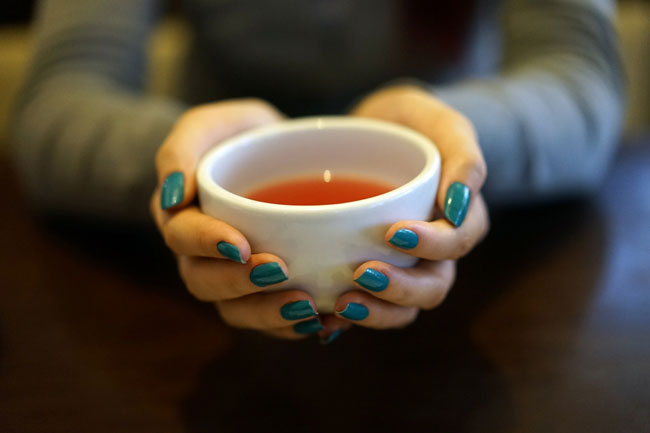
OR
Health Corner
Sometimes, health issues don’t have to be big or serious, even small nicks can be a source of major discomfort. Thus information and knowledge on handling these issues always comes in handy. The Week collected some common health concerns and consulted experts on the matter.
I wake up in the middle of the night and I can’t move
Up to as many as four out of every 10 people may have sleep paralysis, though there are still some in our country who believe the weird phenomenon is brought on by the supernatural. Either way, many who have experienced it consider it to be very distressing. What’s more, there are apparently people out there who suffer from sleep paralysis on a regular basis. Fortunately, while this can be terrifying, experts assure us that sleep paralysis is not considered to be a dangerous or harmful medical condition.
Sleep paralysis occurs when the brain and body aren’t quite on the same page during REM sleep.
Sleep paralysis has been linked to some common contributing factors. They include lack of sleep, changes in sleep schedule, sleeping on the back, too much stress, and use of certain medications, such as those for ADHD.
So, if you keep these things in mind and, for instance, make sure you get enough sleep, do what you can to relieve stress in your life especially just before bedtime, or try new sleeping positions, you might be able to get a good night’s sleep without any night terrors.
My ears hurt whenever I try to clean them
As satisfying as it might be to see a bit of yellow wax on the cotton bud, many ENT doctors share that most people clean their ears wrong because many have a habit of probing too far into their ear canal. And this has bought on some really bad results. Some might be surprised but it is apparently not uncommon to hear about patients who have poked a hole through their eardrum after using cotton swabs. So vigilance is highly recommended here.
First of all, you need to know that earwax isn’t all that bad. Earwax holds antibiotic and antifungal properties, and too much cleaning can lead to problems such as ear infections and eczema in the outer ear. So experts suggest that we limit our ear cleaning to two or at most, three times a month.
Also only clean after a shower since the wax will be softer and easier to clean. Line up a fingernail at the point where the cotton meets the Q-tip stick – this will safeguard you from going too deep. Gently wipe inside your ear, and try not to obsess over whether there’s any earwax left.
There are people who avoid the scenario altogether and opt for the likes of baby oil and hydrogen peroxide for a thorough clean, but you might want to consult your doctors to learn the steps correctly.
Further, if you constantly feel some pain in your ear, contact your doctor immediately.
The right way to handle ingrown toenail
Ingrown toenails are painful, and they can be tricky to treat because they can easily become infected and are often a recurring problem. If your ingrown toenail has become infected, you shouldn’t attempt to treat it yourself. This definitely requires some professional care. So look out for the common signs. An infected ingrown toenail will be sore, red and swollen, possibly with blood and/or pus along the side of it. An infected ingrown toenail is not something to ignore, as it can lead to some serious repercussions.
If the ingrown toenail is not infected, you can try some at-home remedies to keep the pain at bay and prevent the ingrown toenail from coming back. Things like allowing your sore toe to soak in a warm salt water bath for 15 minutes a couple of times every day can help relieve pain and swelling.
However, make sure you dry your foot completely after each soak. It’s important to keep your feet dry.
You can also rub your toe with antibiotic ointments to help reduce the chances of developing an infection. Cover the sore toe with a Band-Aid or other bandages to offer a little extra padding and protection. More importantly, always choose shoes that are easy on your toes.

Is steaming hot tea linked to cancer?
Everybody obviously likes their tea and coffee hot, however, you might be wary about the consequences. While some people prefer finishing their beverage well before the steam has even settled, researchers warn us that the choice may come at a cost. It isn’t just a rumor. The British Medical Journal study found that drinking black tea at temperatures of 70 degree Celsius or higher increased the risk of oesophageal cancer.
The oesophagus is the muscular tube that carries food from the throat to the stomach. Oesophagus cancers has been known to kill more than 500,000 people worldwide each year. And while tobacco and alcohol are the main factors linked to the development of oesophageal cancers in Europe and America, this habit of drinking and eating very hot food and beverages on a regular basis has also been acknowledged as a contributing factor that increases your risk of developing cancer of the oesophagus as well. So practice some patience, wait a while before enjoying your next cuppa.
Will vitamin D save my life?
A growing body of evidence strongly suggests that vitamin D in high doses not only helps keep bones strong but also reduces the risk of colon, ovarian, and breast cancers, and diseases such as diabetes and multiple sclerosis. And many of us don’t get enough because of a lack of exposure to sunlight (the sun triggers D’s production in the skin) or diets that omit good sources (fatty fish such as salmon, mackerel, and tuna, and fortified milk and cereal). While the official daily dose for people age 51 to 70 is 400 IUs, most experts agree that they should aim for 800 to 1,000 IUs of supplemental D a day. But if you’re under 50 and you consume the recommended 200 IUs (the equivalent of two glasses of milk daily) and get 10 to 15 minutes of sun exposure – without sunscreen – a day, a 400 IU supplement should do you fine.
You May Like This

We will not allow polls if the statute not amended by May 18: Mahato
KATHMANDU, May 11: Senior leader of Rastriya Janata Party Nepal (RJPN) leader Rajendra Mahato has warned that his party will... Read More...

Nepal would not have existed if Prithvi Narayan Shah had not played unifying role: PM Dahal
CHITWAN, Jan 10: On the eve of the birth anniversary of late King Prithvi Narayan Shah, Prime Minister Pushpa Kamala... Read More...

‘500-Denominated banknote not illegal, but not exchangeable’
KATHMANDU, Nov 26: The newly-circulated Indian banknote will be illegal to exchange in Nepal until the Reserve Bank of India... Read More...




Just In
- Govt receives 1,658 proposals for startup loans; Minimum of 50 points required for eligibility
- Unified Socialist leader Sodari appointed Sudurpaschim CM
- One Nepali dies in UAE flood
- Madhesh Province CM Yadav expands cabinet
- 12-hour OPD service at Damauli Hospital from Thursday
- Lawmaker Dr Sharma provides Rs 2 million to children's hospital
- BFIs' lending to private sector increases by only 4.3 percent to Rs 5.087 trillion in first eight months of current FY
- NEPSE nosedives 19.56 points; daily turnover falls to Rs 2.09 billion















Leave A Comment